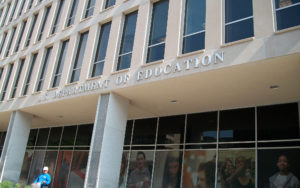‘Love Hormone’ May Boost Sociability In Kids With Autism
A simple nasal spray of a naturally-occurring hormone is showing tremendous promise in treating the socialization difficulties associated with autism.
Preliminary findings from a small, ongoing study of children ages 7 to 18 with autism indicate that a spray of oxytocin dramatically alters brain activity, particularly in the areas responsible for socialization.
“When we’re comparing days in which children come in and get an oxytocin spray versus days they come in and get a placebo spray, we’re seeing a huge difference in brain function,” said Ilanit Gordon of the Yale Child Study Center who presented the research Wednesday at the International Meeting for Autism Research in Toronto.
Advertisement - Continue Reading Below
The differences are especially striking because they are apparent as kids perform a wide variety of tasks, Gordon said.
The research is the first double-blind, placebo-controlled study to look at the effects of oxytocin on kids with autism.
Often referred to as the “love hormone,” oxytocin occurs naturally in the body during childbirth and helps mothers bond with their babies, for example.
Though many unknowns remain about the potential for utilizing oxytocin with those who have autism, Gordon said she and her colleagues are optimistic.
“We’re hopeful that this will lead to better treatment for social dysfunction in ASD,” Gordon said.
Read more stories like this one. Sign up for Disability Scoop's free email newsletter to get the latest developmental disability news sent straight to your inbox.


